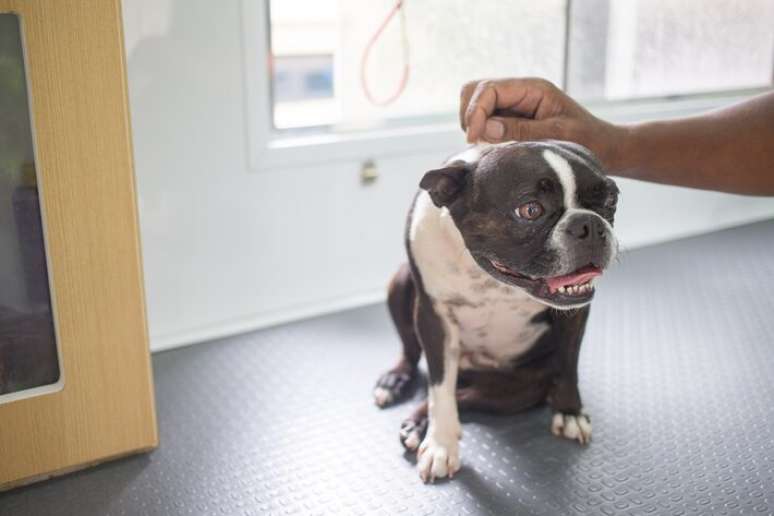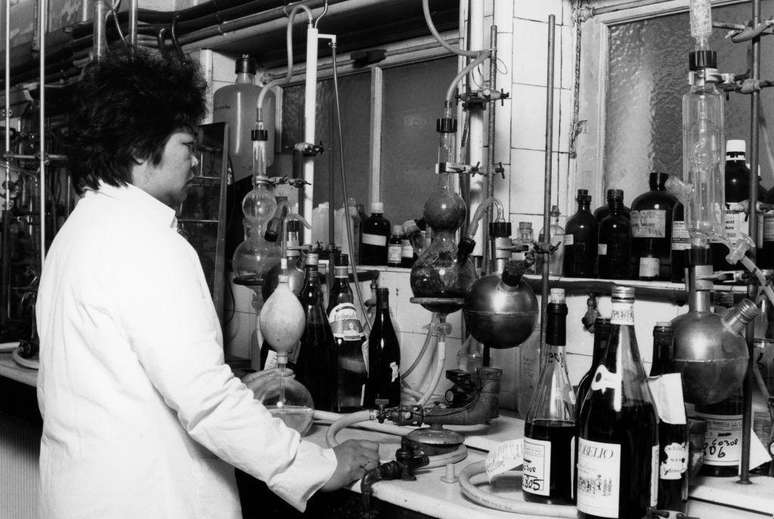Among the main measures is the ban on displaying animals at street events and in public spaces.
Governor Tarcísio de Freitas (Republican) approved on Wednesday 10 the bill that establishes new rules for the sale, creation and exhibition of dogs AND cats for commercial purposes in the State of São Paulo. Among the main provisions of the new legislation, published in official diary This Thursday, the 11th, is the ban on the exhibition of dogs and cats in street demonstrations and in public spaces, and the permission to sell the puppies of these animals only after four months of life, and on condition that they are neutered and vaccinated.
The PL, drafted by the Executive, was submitted to the Legislative Assembly last year. In June, deputies approved and sent the proposal back to the governor for sanction.
The law also requires breeders to keep females with newborn puppies for six to eight weeks, so that the animals can properly follow the lactation process; and that females (bitches or cats that will be used for breeding purposes in breeding) can have a maximum of two pregnancies per year, and must be neutered at the age of 5.
In the case of police dogs, sniffer dogs, rescue dogs, guide dogs and therapeutic assistance dogs, neutering can be carried out up to 18 months of age and not four months, as required for animals that will not be bred for these purposes.
The law also requires that breeders have housing compatible with the size, size and quantity of the dogs and cats bred; that the animals are subjected to annual veterinary visits and vaccinations; are kept in environments free from the risk of contamination by endo and ecto parasites, and are not displayed in closed glass cases or housed in uncomfortable or exploratory spaces that impede movement and compromise physical and mental health.
What does the law determine? See the main points
- Breeders must ensure that females remain with newborn puppies for a period of six to eight weeks, so that the animals follow the nursing process properly;
- Domestic dogs and cats may be sold or traded by breeders and commercial establishments only after reaching a minimum age of four months;
- Sterilize, i.e. surgically castrate puppies up to four months of age, with the exception of working dogs in the activities of police dogs, sniffer dogs, rescue dogs, guide dogs and therapeutic assistance dogs, which must be surgically sterilized up to 18 months of age;
- Breeders will only be able to have females (bitches or cats that will be used for breeding purposes in breeding) for reproduction starting from the third estrous cycle or from the 18th month of life;
- Sows can have a maximum of two pregnancies per year and must be castrated at the age of 5;
- Microchip the animals and register them in a specific database that will be regulated by the Executive Public Power of the State;
- The month of May is established as “Animal Health Month” in the calendar of the State of São Paulo.
Vetos
Governor Tarcísio de Freitas vetoed point III of Article 4 and Article 12 of the proposal submitted by Alesp.
Point III, which provided for the hiring of veterinarians registered with the Regional Council of Veterinary Medicine (CRMV-SP) by dog and cat breeders, was vetoed, according to the Government, as it considered the proposal unconstitutional, since the matter, as it provides for labor law and the conditions for the exercise of professions, is the competence of the Union.
“It is also up to the dog and cat breeder, in the regular exercise of the management of his business, to choose, among the means permitted by the legislation, the methods with which to hire the technical manager and provide medical-veterinary assistance in their establishment.”
Article 12 established that violators would be subject to the criminal sanctions provided for by Federal Law No. 9,605/98, which deals with criminal and administrative sanctions for behaviors and activities that damage the environment, including fauna and flora.
According to Tarcísio, the article was excluded because the offender would be liable to punishment only in the criminal sphere, “excluding the possibility of being held responsible in the administrative sphere, even for having committed other infringements not foreseen by the aforementioned legal provision”. .”
The Executive’s proposal was put forward after a member of parliament vetoed the project
The Executive’s proposal, defined in the text of the project as “protection, health and welfare in the breeding and marketing of dogs and cats in the State of São Paulo”, was presented to Parliament after Tarcísio vetoed PL 523/2023 by MP Rafael Saraiva (Union)which led to the ban on the creation and resale of animals (dogs, cats and domestic birds) in pet shops and commercial establishments, while keeping donations free.
At the time, the MP argued that the aim was to put an end to illegal breeding sites. However, the government vetoed it because it believed that the measure violated the principle of free enterprise, considered at the time a fundamental principle of the economic order.
PL 1477/2023, ratified by Tarcísio de Freitas, emerged as an alternative to Saraiva’s project. “The project was born to improve Law 523/2023, which prohibited the breeding and resale of animals in pet shops and commercial establishments and created the State Registry of Animal Breeders – which was vetoed for violating the principle of free enterprise, this being a basic principle of the economic order,” the regional government explained in the season.
How it works in the city of Sao Paulo
In the city of São Paulo, Law No. 14,483 of 2008 is in force, which regulates the breeding and retail sale of dogs and cats in commercial establishments in the city.
According to city regulations, the reproduction of animals intended for sale can only be carried out by kennels and breeding farms that are regularly established and registered with the competent authorities, while the sale and donation of dogs and cats in public places is prohibited – with the exception of events aimed at donations in municipal parks.
Donations are allowed in legal establishments, such as pet shops, under the responsibility of a natural or legal person and with a sign attached, indicating the name of the responsible person, their CPF or CNPJ numbers, telephone number and address.
Under the new state law, animals intended for donation must also be neutered, vaccinated, and tested for parasites, as well as microchipped with information on their species, sex, coat color, age, and breed.
Source: Terra
Ben Stock is a lifestyle journalist and author at Gossipify. He writes about topics such as health, wellness, travel, food and home decor. He provides practical advice and inspiration to improve well-being, keeps readers up to date with latest lifestyle news and trends, known for his engaging writing style, in-depth analysis and unique perspectives.





![It All Begins Here: What’s in store for Tuesday 21 October 2025 Episode 1289 [SPOILERS] It All Begins Here: What’s in store for Tuesday 21 October 2025 Episode 1289 [SPOILERS]](https://fr.web.img3.acsta.net/img/99/48/99481db5c03e1ff295fce95b23125991.jpg)



